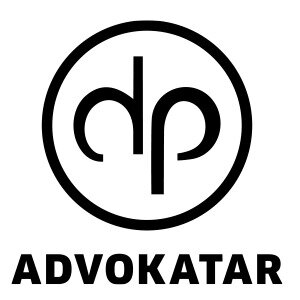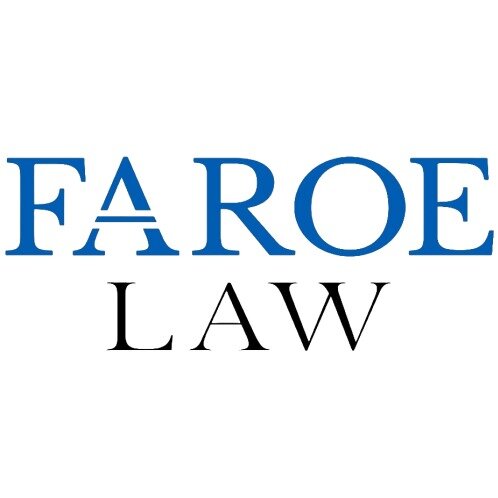Best Restructuring & Insolvency Lawyers in Faroe Islands
Share your needs with us, get contacted by law firms.
Free. Takes 2 min.
Or refine your search by selecting a city:
List of the best lawyers in Faroe Islands
About Restructuring & Insolvency Law in Faroe Islands
Restructuring and insolvency law in the Faroe Islands provides a legal framework to address financial distress affecting individuals and companies. The goal is to ensure fair treatment of creditors, preserve as much value as possible, and, when appropriate, enable financially troubled businesses to reorganize and continue operations. The system in the Faroe Islands combines principles from Danish law, since the Faroe Islands are a self-governing territory within the Kingdom of Denmark, but also features local regulations and specific procedures. The process may involve negotiation between creditors and debtors, court-driven insolvency interventions, and sometimes the orderly liquidation of assets.
Why You May Need a Lawyer
Seeking legal advice is essential if you or your business is facing financial difficulties or the threat of insolvency in the Faroe Islands. Legal professionals can help in numerous scenarios, such as:
- Advising stressed companies on debt restructuring options
- Representing creditors looking to recover debts
- Assisting with formal insolvency proceedings such as bankruptcy or liquidation
- Helping individuals facing personal bankruptcy
- Drafting and negotiating restructuring agreements
- Ensuring compliance with local legal requirements and court procedures
- Protecting assets and minimizing losses
- Communicating with authorities or courts on your behalf
- Guiding business owners on director duties during financial difficulties
- Supporting cross-border insolvency issues involving Faroese entities
Local Laws Overview
The legal foundation for restructuring and insolvency in the Faroe Islands is influenced by the Danish Bankruptcy Act, with modifications for local governance. Key features include:
- Bankruptcy Initiation - Bankruptcy can be initiated by creditors or the debtor, usually through a petition to the court. A bankruptcy estate is formed upon declaration, and a trustee is appointed to manage proceedings.
- Reconstruction - The law provides mechanisms for the reconstruction, or restructuring, of companies facing temporary financial crises, aiming to avoid bankruptcy through creditor negotiations and court-approved plans.
- Creditor Rights - Creditors must submit claims within set deadlines and participate in meetings regarding the administration of the debtor's estate.
- Payout Priorities - The law details how distributions are made to creditors, prioritizing secured debts, certain public claims, and then unsecured creditors.
- Director Duties - Company directors have specific legal duties during financial distress, including reporting insolvency and avoiding transactions that favor some creditors over others.
- Personal Bankruptcy - Individuals can apply for personal bankruptcy, with the court overseeing debt settlement or liquidation proceedings.
- Asset Liquidation and Discharge - For companies and individuals whom restructuring fails, formal liquidation and possible debt discharge processes apply.
Due to the combination of Danish and local law, and the requirements for working in the Faroese language, legal guidance from a locally qualified practitioner is highly advisable.
Frequently Asked Questions
What is the difference between restructuring and insolvency in the Faroe Islands?
Restructuring involves reorganizing a company’s debts and operations to restore financial stability, often to avoid insolvency proceedings. Insolvency is a formal legal state where a company or individual is unable to pay debts as they come due, which may lead to bankruptcy or liquidation.
How do I know if my business is insolvent?
A business is generally insolvent if it cannot meet its payment obligations when they are due or its liabilities exceed its assets. Early signs include mounting unpaid invoices, pressure from creditors, and cash flow problems.
Can individuals file for bankruptcy in the Faroe Islands?
Yes, individuals can apply for personal bankruptcy. The court will assess the situation and, if granted, will oversee the administration and distribution of assets or a debt settlement plan.
What is the typical process for corporate insolvency?
The process starts with a bankruptcy petition to the court, usually by a creditor or the company itself. If bankruptcy is declared, a trustee is appointed, and all assets are managed and liquidated for the benefit of creditors according to statutory priorities.
Who manages the insolvency process?
An independent trustee, appointed by the court, manages the insolvency process. The trustee is responsible for gathering assets, verifying claims, and distributing proceeds to creditors.
Can a company continue operating during restructuring?
Yes, in many cases, companies are allowed to continue operations during the restructuring process, especially if it is likely to preserve more value for creditors and potentially secure a long-term recovery.
Do creditors have to accept a restructuring plan?
Creditors must vote on proposed restructuring plans. Approval usually requires a majority by value and number of creditors. The court must also approve the plan for it to take effect.
How are employees affected during insolvency?
Employees’ rights are protected by law, and unpaid wages typically have a higher priority in the order of distribution. Employees may also be eligible for public wage guarantee schemes.
Are secured creditors treated differently from unsecured creditors?
Yes, secured creditors are generally first in line to be paid out of the proceeds from their secured assets. Unsecured creditors are paid only after secured and preferential claims.
What should I do if someone owes me money and is going insolvent?
Consult a lawyer promptly to submit a claim in the insolvency process and to understand your rights as a creditor, including any available remedies or possible negotiations before formal proceedings.
Additional Resources
If you are seeking further information or support, the following institutions and resources may be helpful:
- Faroe Islands Courts - For initiation of insolvency proceedings and official procedures
- Faroese Bar Association - For finding a qualified local lawyer who specializes in insolvency and restructuring
- Faroese Business Authority - Guidance for companies in financial distress and advice on compliance
- Local Chambers of Commerce - Support and referrals for business owners
- Public Wage Guarantee Fund - Information on rights and guarantees for employees in case of employer insolvency
Next Steps
If you believe restructuring, bankruptcy, or insolvency might be relevant to your situation, consider the following steps:
- Gather financial records and assess your or your business’s cash flow and obligations
- Identify early warning signs of financial stress
- Consult a local lawyer experienced in restructuring and insolvency for a confidential assessment
- Prepare to discuss your options, whether informal negotiation with creditors or formal court proceedings
- Stay informed about key deadlines and obligations to ensure compliance with local laws
- Engage with relevant governmental or support bodies early for practical guidance
Timely legal advice can help you understand your rights, avoid costly mistakes, and clarify the best path forward. Acting proactively is crucial in protecting your interests in any restructuring or insolvency situation in the Faroe Islands.
Lawzana helps you find the best lawyers and law firms in Faroe Islands through a curated and pre-screened list of qualified legal professionals. Our platform offers rankings and detailed profiles of attorneys and law firms, allowing you to compare based on practice areas, including Restructuring & Insolvency, experience, and client feedback.
Each profile includes a description of the firm's areas of practice, client reviews, team members and partners, year of establishment, spoken languages, office locations, contact information, social media presence, and any published articles or resources. Most firms on our platform speak English and are experienced in both local and international legal matters.
Get a quote from top-rated law firms in Faroe Islands — quickly, securely, and without unnecessary hassle.
Disclaimer:
The information provided on this page is for general informational purposes only and does not constitute legal advice. While we strive to ensure the accuracy and relevance of the content, legal information may change over time, and interpretations of the law can vary. You should always consult with a qualified legal professional for advice specific to your situation.
We disclaim all liability for actions taken or not taken based on the content of this page. If you believe any information is incorrect or outdated, please contact us, and we will review and update it where appropriate.
Browse restructuring & insolvency law firms by city in Faroe Islands
Refine your search by selecting a city.













